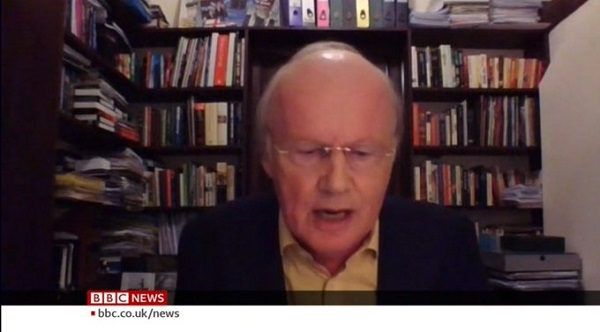I would like to call the three days of protests over the death of George Floyd in Minneapolis as unexpected but given that this was caused by the killing of a handcuffed black man who pleaded for air as a white police officer kneeled on his neck, it seems inevitable. The death of yet another black man at the hands of semi-militarised police is an ongoing tragedy which hasn't stopped, even in the midst of a pandemic.
What was also inevitable was the 45th President Of The United States openly calling for violence in racially charged circumstances. If ever there was a man unfit for the office; he is it. Or maybe not. America is openly having a dalliance with fascism and somehow, this clown is the perfect fit.
Also amidst all of this is the hideous miscarriage of justice which is taking place, in that no charges been filed as a result of George Floyd being pinned to the ground by his neck on video for more than 7 mins and occasioning death.
Hennepin Co. Attorney Freeman:— NBC News (@NBCNews) May 28, 2020
“That video is graphic and horrific and terrible and no person should do that. But my job in the end is to prove that he violated a criminal statute, and there's other evidence that does not support a criminal charge... I will not rush to justice.” pic.twitter.com/RZ9iYsvQ1W
- via NBC News, 29th May 2020.
Basically, one of the serious oddities and flaws of American Law which is more Roman in character than English, is that it is very difficult to bring claims against either individual police officers or the States as their employer for acts which, done by anyone else, are clearly torts. Quite frankly the entire idea of giving state officials, especially the police, "qualified immunity" is abhorrent.
This kind of "qualified immunity" by hiding behind the wall of the state, absolves an individual of all kinds of heinous crimes and does nothing more than to make lies sound truthful and murder respectable.
America told itself as a starting lie that certain these truths were self-evident, that all men are created equal, that they are endowed by their creator with certain unalienable rights, and then immediately declared that some people were only worth 3/5ths of a person; which is still in force today by only affording some people with 3/5ths of justice before the law.
Article 7 of the Universal Declaration of Human Rights² (UDHR) states: "All are equal before the law and are entitled without any discrimination to equal protection of the law". America not only does not recognise the Universal Declaration of Human Rights, it also doesn't fundamentally believe in human rights either.
I think that it should be obviously that we should have exactly the same rights against the police as we do against other people. Granted, that carefully defined specific privileges are in fact necessary to carry out police work because police work involves dealing with some very nasty people but, those defined specific privileges need to be precise. I wonder if people in the US realise how odd US law looks to those outside it? They probably don't care, considering that 10,000 firearm deaths per year is acceptable and now we are discovering that 100,000 deaths due to inadequate health care in the middle of a pandemic is also acceptable.
I suppose that my major flaw here is that as someone who has read law and read comparative constitutional law, I think that I may have made a category error. This isn't really about constitutional law, or common law but rather, America which started as a militia state, basically still only recognises that as the only source of law. Once you give people uniforms and guns, they are the law. Of course you are going to get riots and murder when America is fuelled by ignorance, alcohol, passion, presumption, and stupidity; and has guns to go with it.
¹1 John 4:18
²https://www.un.org/en/universal-declaration-human-rights/




